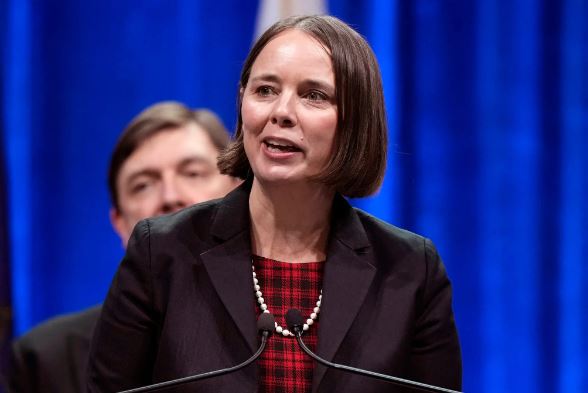A judge in Maine has issued a ruling directing the state’s top election official, Secretary of State Shenna Bellows, to await a U.S. Supreme Court decision before enforcing her choice to exclude former President Donald J. Trump from the state’s Republican primary ballot. Justice Michaela Murphy of Maine Superior Court asserted that Bellows, bound by Maine law, had to make a swift decision without the benefit of the Supreme Court’s input. The Supreme Court is set to review a Colorado court’s decision to exclude Trump from the ballot, with arguments scheduled for Feb. 8. Bellows referenced the Colorado court’s rationale in her ruling.
In a 17-page decision, Justice Murphy stated that Bellows faced an uncertain legal landscape when issuing her ruling and should have the opportunity to evaluate the implications of the Supreme Court’s decision on her ruling. The judge ordered Bellows to issue a new decision no later than 30 days after the U.S. Supreme Court rules on the Colorado case, modifying, withdrawing, or confirming her prior decision to keep Trump off the ballot.
Maine’s unique process requires its secretary of state to address ballot eligibility questions before the courts do. Several Maine voters had petitioned Bellows to exclude Trump, arguing that he was no longer eligible for public office due to his alleged involvement in the insurrection on Jan. 6, 2021. They contended that the 14th Amendment of the Constitution, intended to disqualify officials engaged in insurrection, applied to Trump.
In her Dec. 28 decision, Bellows sided with the voters, finding Trump ineligible for the presidency and, consequently, the Maine ballot. This decision made Maine the second state, following Colorado, to prevent Trump’s inclusion on the ballot.
The fate of similar challenges in other states may depend on the Supreme Court’s ruling. Challenges have been filed in at least 35 states, with over half still pending resolution as the primary season gets underway.
Trump’s legal team appealed Bellows’s decision, arguing that she lacked the authority to consider federal constitutional issues and that her decision was biased. A spokesperson for Trump expressed confidence in ultimately prevailing with a fair ruling on the issues before the Supreme Court.
Ethan Strimling, a former Portland mayor who advocated for Trump’s removal from Maine’s ballot, welcomed the court’s decision to leave Bellows’s ruling intact. A poll by the University of New Hampshire showed a sharp divide among Maine residents, with Democrats largely supporting Bellows’s decision and Republicans opposing it.
Nicholas F. Jacobs, an assistant professor at Colby College, praised the court’s move as prudent, considering the current climate of suspicion around election security. The decision, according to Jacobs, minimizes potential destabilization and promotes predictability in the coming weeks.
Justice Murphy’s decision to postpone a ruling on Trump’s ballot eligibility reflects a thoughtful approach to address concerns about partisanship in the election process. It underscores the complex legal landscape surrounding Trump’s candidacy and the importance of waiting for the Supreme Court’s input before finalizing decisions at the state level. The political and legal drama surrounding Trump’s potential inclusion on primary ballots continues to unfold, with broader implications for the intersection of state and federal election laws.

